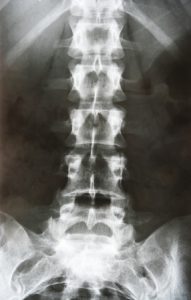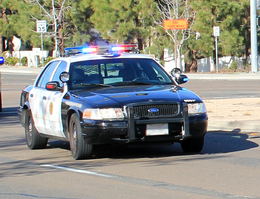Top 5 Mistakes That Can Hurt Your Personal Injury Claim
Personal injury cases can be very complex and can undergo numerous phases in order to reach a conclusion including investigations, negotiations, arbitration or trial. Initially, clients who have been hurt, at no fault of their own, assume the liable party’s insurance will pay to have their property and injuries restored to pre-accident condition. This is not the case. They don’t understand that insurance companies strive to pay less, a lot less.
My clients quickly become aware that dealing with insurance companies is in many ways the most important aspect of getting the money they deserve after an accident. Insurance companies bet that the average person does not have the knowledge or tenacity for the fight. An experienced attorney knows how to navigate the process and prevent insurance adjusters from twisting the facts or demonizing you to achieve a lower settlement. Looking back at their case with perfect hindsight, clients appreciate what they could, or should have done to improve the outcome of their personal injury claim.
Today’s blog will review the top 5 mistakes my personal injury clients wish they hadn’t made, (in perfect hindsight):
Failure to seek medical treatment right away for injuries

Typical comments I hear from my clients include:
- “I was hoping it wasn’t as bad as it was, and I thought I could tough it out.”
- “I didn’t have health insurance” or “I had a deductible I was trying to avoid”
- “I treated for weeks and started to feel better, and I was nervous about taking too much time away from work.”
Bottom line: See a doctor following a car accident if you feel any level of pain and discomfort. It is important for your health and your personal injury case to complete all individualized treatment plans 100%.
Failure to call the police and adequately document evidence at the accident scene

Bottom line: While experts will most likely conduct investigations, it is helpful to your claim to document as much evidence as possible.
Agreeing to give a “recorded statement” or sign a medical authorization
A “recorded statement” is truly a trap for the average person who is inexperienced in dealing with insurance companies. An experienced insurance adjustor will often call the client directly after the accident claiming that they need a “bit more information” before they can pay on the claim. This conversation quickly turns into the client agreeing to a recorded statement about the accident facts. What the insurance adjustor is seeking are facts and information in your own words that can be used in a negotiation, deposition, or trial to create doubt about your case, with the sole purpose of lowering the settlement or award value. An insurance company will never take the information you provide and conclude that you deserve 10 times their offer to settle.
Bottom line: You can politely decline to provide any recorded statement or sign any documents for the “other” ( liable party) insurance company. It is a good idea to talk with a lawyer and determine if representation is appropriate for you. Once you have a lawyer representing you, they will handle ALL further communication with insurance adjusters on your behalf.
Failure to purchase adequate UM/UIM and PIP insurance coverage

Even though my clients have been hurt, the liable party doesn’t have enough insurance to cover their medical bills and compensate them for their injuries, let alone car/ property damage. The “average bodily injury” accident cost is $150K, and serious accidents quickly exceed $500K. It is at this point (in hindsight) that my clients wish they had purchased additional Uninsured Motorist and Under Insured Motorist (UM/UIM) insurance to protect them and their family.
Bottom line: UM/UIM insurance is smart and necessary.
Waiting to obtain the right legal representation
One of the most frequent comments I hear from clients is, “I wish I called you sooner.” Clients underestimate the amount of effort it takes to navigate the insurance and legal process to obtain a fair and equitable settlement. What the right lawyer can do for you is: educate – communicate – relieve the stress – define a winning strategy – negotiate or prosecute the claim — obtain the best settlement for you. How do you know when you have found the right lawyer? Look for an attorney that specializes in personal injury cases, with the resources, time, and experience to devote to your case. Meet with your prospective attorney to determine if you have the right chemistry and fit. Finally, look for legal counsel with the knowledge, skills, and experience to prosecute your case through a trial.
Bottom line: Insurance companies use tricks to place blame on innocent accident victims and bully them into taking low-ball settlements. There is too much at stake to go at it alone.
Attorney Travis Mayor

If you or someone you know has been injured as a result of another person’s conduct, and you are looking for a skilled attorney to lead you through the insurance roadblocks, please call today for a free and confidential case evaluation. Local (503) 444-2825 Toll free 1-800-949-1481 or email travis@mayorlaw.com.
For additional information about personal injury cases, insurance, and maximizing your financial recovery, I recommend the following articles on my Blog:
8 Mistakes Insurance Companies Are Hoping You Make!
Oregon Car Accident Guide: Protect Your Rights and Maximize Your Financial Recovery
Oregon Car Insurance and Personal Injury Claims FAQs
Oregon Personal Injury Case FAQs
What is my Personal Injury Case Worth?
